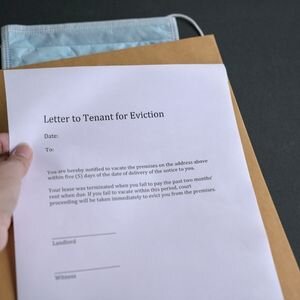Dealing with a problem tenant can feel like the worst part of being a landlord. You thought renting out your property would bring in steady income, but instead, you’re stuck with someone who won’t pay rent or keeps throwing parties that wake up the entire neighborhood. If you’re ready to move on instead of fighting through the courts, you can sell your Hawaii house faster with Oahu Home Buyers.
You want to start the eviction process, but you’re probably wondering how long you’ll have to wait before you can finally move on.
Well, most Hawaii evictions take 4 to 12 weeks from start to finish, which feels like forever when you’re spending money. In this blog, we’ll get into the details on why some evictions are faster while others last several months.
Legal Grounds for Eviction in Hawaii
You can’t just wake up one morning and decide to boot someone out because you don’t vibe with them anymore. Hawaii has rules about when you can legally evict a tenant.
Nonpayment of Rent
Rent is officially late the day after it’s due in Hawaii. You can start the eviction clock ticking with a 5-day notice. If they cough up the cash within those five days, the whole thing stops right there.
Most tenants either pay immediately or start packing. They know you mean business when that notice shows up.
Lease Violations
Some actions count as lease violations, like unauthorized pets, smoking in non-smoking units, or throwing ragers every weekend. You’ll need to give them a 10-day notice to fix the problem or vacate the premises.
The notice has to spell out exactly what they did wrong. You can’t just say “you know what you did.” Some violations, like serious property damage, don’t get a fix-it period because what’s done is done.
Illegal Activity on the Property
You can serve an immediate notice to quit with zero chances to make things right for drug dealing or violent crimes. For smaller illegal stuff that just annoys everyone (like noise violations that technically break city ordinances), you can give them 24 hours to cut it out, then a 5-day notice if they keep it up.
The keyword here is “threatens.” If other tenants feel unsafe, you’re allowed to move fast.
Property Damage or Safety Threats
When tenants punch holes in walls or threaten other residents, you don’t have to play nice with cure periods. Immediate notice to quit, straight to court if they don’t vatae the property.
Just make sure you document everything with photos and written statements because you’ll need to prove the threat was real and serious.
End of Lease Term (No-Cause Evictions)
Month-to-month tenants get 45 days to find new digs when you want them out without cause. Fixed-term leases are trickier. You generally can’t boot someone mid-lease unless they mess up.
If you’re planning major changes like demolition or condo conversion, bump that notice up to 120 days because that’s a huge life disruption for tenants.
The Hawaii Eviction Process: Step-by-Step Timeline
Each step in Hawaii’s eviction process has its own timeline and rules. Check out the details below.
Step 1: Serve Eviction Notice (0-120 days)
The clock starts when you serve that written notice. Rent issues get 5 days, lease violations get 10, and no-cause evictions for month-to-month tenants get 45. You have to serve it properly, though. You need to hand it to them directly, leave it with another adult at the place, or post it conspicuously if they’re dodging you.
Keep a proof of when and how you served it because tenants love to claim they never got it.
Step 2: File Eviction Lawsuit (Immediate after notice expires)
Once your notice period runs out and they’re still there, you can march down to the District Court and file your complaint or eviction lawsuit for summary possession. Each island has its own forms, so don’t grab the wrong paperwork.
You’ll pay $155 to file and need to attach copies of the lease and your notice. The court clerk doesn’t care about your sob story. They just want the paperwork done right.
Step 3: Serve Summons to Tenant (Few days to 1 week)
You can’t serve the summons yourself. Hawaii requires a neutral third party, like the sheriff or an adult who’s not involved in your case. They’ll track down the tenant and hand over the court papers that say, “you’re being sued, show up on this date or lose automatically.”
Sheriff service costs about $43 to $50 per hour and usually happens within a week unless your tenant is really good at hiding.
Step 4: Tenant Response Period (5-7 days)
Tenants get 5-7 days to file a written response after getting served. Most don’t bother because they either don’t understand the process or figure they’ll just explain themselves at the hearing.
Smart tenants who file responses usually claim you didn’t follow proper procedures or that the place was uninhabitable. Their response will give you a sneak peek at their defense strategy.
Step 5: Court Hearing (1-3 weeks after filing)
The court day happens 1 to 3 weeks after filing and you both show up to duke it out in front of the judge. Bring everything, including the lease, payment records, photos, and proof of service.
If they don’t show, you win by default. If they do show up, you each get your turn to make your case. These hearings happen fast, so have your documents organized and your story straight.
Step 6: Obtain Writ of Possession (Few hours to few days)
Winning the case doesn’t automatically boot the tenant. You need that magic piece of paper called a writ of possession. Ask the court clerk for it because they won’t just hand it over.
They’ll prepare it within a few hours to a few days. This document gives the sheriff permission to physically remove your tenant if needed.
Step 7: Sheriff Removal (Few days to 1 week)
Take your writ to the sheriff’s office and they’ll serve it on the tenant. They’ll usually give them 24 hours to a few days to clear out.
If the tenant doesn’t leave voluntarily, the sheriff will come back and remove them. You pay another $40 to $50 per hour for this service, but at least you finally get your property back.
Don’t even think about changing locks yourself. That’s illegal self-help and will cause you serious repercussions.
How Long Does an Eviction Process Take in Hawaii Overall
How long does an eviction process take in Hawaii you ask? The fastest possible eviction timeline is 4 to 6 weeks when everything goes your way. For example, your tenant doesn’t pay rent, you serve the 5-day eviction notice properly, they don’t respond to the lawsuit, and they skip the court hearing entirely. You win by default judgment and they actually move out when the sheriff shows up.
This almost never happens, but when it does, you’re looking at about a month to six weeks total. Most landlords only see this timeline when tenants know they’re completely screwed and just give up without a fight.
Most Hawaii evictions take 6 to 12 weeks in reality. Your tenant might file a response or show up to court with some excuse. The court schedule isn’t exactly speedy and you’ll wait weeks for your hearing date.
If you add in time for serving notices, filing paperwork, and getting the sheriff to actually remove the tenant, you’re looking at 2 to 3 months from start to finish. Extended cases can stretch to 3 to 6 months when tenants fight everything and drag the process out.
They might claim the property is uninhabitable, file appeals, or keep coming up with new excuses every time you get close to winning. These scenarios can cost you a fortune in legal fees and lost rent.
Factors That Can Delay Hawaii Evictions
Some things are completely out of your control, but knowing what slows down evictions helps you prepare for the long haul.
Tenant Contests the Eviction
The moment your tenant hires a lawyer or starts filing paperwork, your timeline just got a whole lot longer. They might claim you didn’t maintain the property properly or that you’re retaliating against them for complaining about repairs.
Even weak defenses can add weeks to your case because the court has to hear them out. Many tenants know that fighting the Hawaii eviction buys them more time living rent-free in your property while you foot the bills. If you’re tired of dealing with problem tenants, here’s how Oahu Home Buyers can help by purchasing your property as-is and taking over the headaches.
Court Scheduling Delays
Hawaii courts aren’t exactly known for their speed and each island runs on its own schedule. During busy periods, you might wait a month just to get a hearing date. This will even take longer due to holidays, judge vacations, and the occasional emergency case.
The court system moves at its own pace and there’s nothing you can do to speed it up except show up prepared when your number finally gets called.
Procedural Errors by Landlord
If you mess up the paperwork, you’re starting over from scratch. The judge will toss your case if you serve the notice incorrectly, use the wrong forms, or forget to attach required documents.
Every mistake costs you weeks or months because you have to go back to square one. This is why some landlords just bite the bullet and hire attorneys from the start. The cost of getting it wrong is usually way more expensive than doing it right the first time.
Appeals Process
Even after you win, your tenant can appeal the decision and drag things out even further. They get to stay in the property while the appeal works its way through the system, which could take months.
Appeals don’t always succeed, but they’re effective at keeping you from getting your property back. It’s like adding insult to injury. You’ve already won once, but now you have to win again while paying for their free housing.
Notice Requirements and Timing in Hawaii
Different eviction reasons come with their own notice requirements.
5-Day Notice for Rent Issues
This is your bread and butter eviction notice, the one you’ll probably use most often. When rent is late by even one day, you can serve this bad boy and start the countdown.
The notice has to state exactly how much they owe down to the penny, including any late fees your lease allows. Don’t get creative with math. Just stick to what’s actually owed or the judge will toss your case.
If they pay up within those five days, game over, you can’t continue with the eviction process properly, even if you really want them gone.
10-Day Notice for Lease Violations
This notice covers all the annoying stuff tenants do that breaks their lease but isn’t about money. Unauthorized pets, smoking where they shouldn’t, rental property damage, or turning your quiet building into party central. You have to be super specific about what they did wrong. A simple “you violated the lease” isn’t enough.
Tell them exactly which rule they broke and how they can fix it. Some violations can’t be fixed though, like major rental property damage, so check your lease carefully before giving them a chance to cure.
Immediate Notice Situations
Sometimes you get to skip the waiting game entirely. As we’ve shared, drug dealing, violence, or anything that threatens other tenants gets an immediate notice to quit with zero cure period.
These situations are serious business, so make sure you have solid evidence before going nuclear. Document everything with photos, police reports, or witness statements because you’ll need to prove the threat was real.
45-Day Notice for Month-to-Month Tenancies
When you want to end a month-to-month tenancy without cause, you need to give them plenty of time to find a new place. Forty-five days might seem like forever when you’re ready for them to leave, but that’s the law in Hawaii.
They can actually move out any time during that period, but they have to tell you when so you can prorate the rent. Don’t accept rent for the full period if they leave early. You’ll mess up your own notice.
Hawaii Eviction Costs and Fees
This whole circus is going to cost you, because surprise… Evictions aren’t cheap and the expenses really balloon fast.
Don’t forget about the lost rent while this drags on. That’s usually the biggest hit to your wallet. Some landlords spend more on eviction costs than they would have lost just letting the tenant stay another month, but sometimes you’ve got to cut your losses and move on.
You should also factor in the time you’ll spend running around to courthouses instead of managing your other properties, because your time has value, too.
Tenant Rights That May Extend the Eviction Time
Hawaii gives tenants several ways to slow down your eviction and many tenants know exactly how to use these rights to buy themselves more time.
Right to Cure Violations
Most lease violations come with a built-in escape hatch for tenants. They get 10 days to fix whatever they screwed up, and if they actually do it, your eviction stops dead in its tracks.
Sounds fair in theory, but some tenants abuse this by barely fixing the problem just long enough to reset the clock. They might get rid of the unauthorized pet for a week, then sneak it back in later.
You’ll have to start the whole process over again if they violate the same rule within 30 days, but at least you don’t have to give them another cure period.
Right to Contest in Court
Every tenant gets their day in court, even when their case is weaker than wet tissue paper. They can claim you’re retaliating against them, that the rental property is uninhabitable, or that you didn’t follow proper procedures. Even bogus defenses take time for the judge to hear and dismiss.
If you’re weighing your options, it’s worth knowing how much it costs to fix a foundation crack in Hawaii — sometimes the repair bill is so high that selling as-is to a cash buyer makes more financial sense than waiting out lengthy legal proceedings.
Protection Against Unlawful Eviction
Hawaii takes illegal eviction tactics seriously and tenants can sue you for big money if you try any self-help measures. Change the locks, shut off utilities, or remove their stuff without a court order and you’re looking at paying their damages plus attorney fees.
Some tenants know this and will bait you into doing something stupid just so they can flip the script and sue you instead. Stay cool and follow the legal process, no matter how tempting it is to take shortcuts.
Stay of Eviction for Rent Payment
Even after you win your case for nonpayment of rent, the tenant can still stop the eviction process by paying everything they owe, plus court costs and your attorney fees. They get to stay in your rental property and you’re back to square one, except now you’re out all the money you spent on legal fees.
The law assumes that getting paid is better than getting possession, but that doesn’t help when you’ve lost all trust in the tenant and just want them gone.
Tips to Expedite the Hawaii Eviction Process
Want to get through this stressful situation as fast as possible? Here’s how to avoid the common mistakes that can make this simple eviction into a months-long ordeal.
Proper Documentation and Record Keeping
Start documenting everything from day one, not just when problems arise. Keep copies of every text message, email, and written notice. Take photos of property damage with timestamps. Maintain detailed rent ledgers showing exactly when payments were due and received.
When you get to court, the judge wants to see evidence, not hear your story about what a terrible tenant they are. Landlords who show up with organized files and clear documentation usually win faster than those who wing it.
Follow Legal Procedures Precisely
Hawaii’s eviction laws are picky about procedures and one small mistake can torpedo your entire case. Use the correct forms for your island. Oahu forms won’t work on Maui.
Serve notices exactly as required by law, with proper timing and methods. Also, double-check every date and deadline because courts don’t give do-overs for sloppy work.
It’s boring attention to detail, but it’s way less boring than starting over from scratch because you used the wrong form or missed a deadline.
Work with Experienced Legal Counsel
A good eviction attorney costs money upfront, but usually saves you time and cash in the long run. They know which judges are sticklers for paperwork and which courts move fastest. More importantly, they don’t make rookie mistakes that reset your timeline to zero. If your rental property is in Kaneohe, avoid the hassle entirely — we buy houses in Kaneohe as-is so you can skip lengthy evictions and move on quickly.
If your rental property generates significant monthly rent or you’re dealing with a problematic tenant who’s likely to fight, the attorney fees are probably worth it just for the peace of mind.
Avoid Self-Help Eviction Mistakes
Do not, under any circumstances, try to force the tenant out yourself. Don’t change locks, don’t shut off utilities, don’t remove their belongings, don’t threaten them, and don’t enter the rental property without proper notice.
These moves will backfire spectacularly and could result in you paying the tenant damages instead of getting them evicted.
Hawaii courts hate landlords who take the law into their own hands, and judges will make you pay for it. Stay professional and let the legal system do its job, even when you’re ready to scream.
Key Takeaways: How Long Does an Eviction Process Take in Hawaii?
Hawaii evictions take 4 to 12 weeks on average, but can stretch to months when tenants fight back or courts get backed up. The process involves specific notice periods, court filings, hearings, and sheriff removal. Messing up any step sends you back to square one. Your biggest costs will likely be lost rent and legal fees, which can easily exceed what you’d lose just letting a bad tenant stay another month.
There are cases when the smartest move is selling your problem property instead of fighting through a lengthy eviction battle. We buy properties with tenant issues and handle the complications for you. Learn more about how we’ve helped other Hawaii property owners in similar situations.
Contact us at (808) 333-3677 or visit to discuss your situation now!
Helpful Hawaii Blog Articles
- Successfully Auction Your House In Hawaii
- Cost Of Listing Your Home On The MLS In Hawaii
- Agent Fees For Selling Your Home In Hawaii
- How To Prevent Home Foreclosure In Hawaii
- How To Navigate And Exit Real Estate Contracts With Realtors In Hawaii
- Inheriting A Home With Siblings In Hawaii
- Changing The Executor Of A Will In Hawaii
- Cost of Asbestos Removal & Testing in Hawaii
- Refinance a House After Divorce in Hawaii
- Condemned House Requirements in Hawaii
- Timing Your Closing After An Appraisal in Hawaii
- Optimal Duration To Live In Your Hawaiian Home
- How Long Does an Eviction Process Take in Hawaii
- How Much Does it Cost to Fix Foundation Crack in Hawaii
- Complete Checklist for Selling a House in Hawaii





